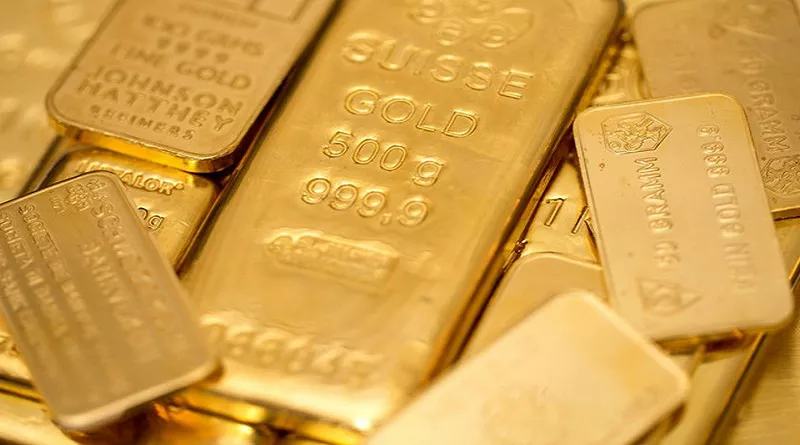In the intricate world of commodities trading, gold holds a special allure as a safe-haven asset and a symbol of wealth and prosperity. Among the various ways to trade gold, two primary methods stand out: spot trading and futures trading. Both avenues offer distinct advantages and cater to different types of traders, making them crucial components of the global gold market. In this article, we’ll delve into the nuances of gold spot and futures trading, highlighting their differences and shedding light on their respective benefits.
Gold Spot Trading: Seizing the Present
Gold spot trading, often referred to as the “spot market,” involves the purchase or sale of physical gold for immediate delivery and settlement. In this context, “spot” refers to the current market price at which gold can be bought or sold. Spot prices are determined by supply and demand dynamics, global economic conditions, geopolitical events, and various market influences. This form of trading is particularly attractive to investors who seek to hold and own physical gold without the obligations and complexities associated with futures contracts.
In a spot transaction, the buyer and seller agree upon a price, and the gold is exchanged for cash almost immediately, typically within two business days. This rapid settlement makes spot trading an efficient choice for those who want to take advantage of current market conditions and secure ownership of gold without delay. Additionally, spot trading doesn’t require traders to manage the intricacies of futures contracts, such as expiration dates and rollovers.
Gold Futures Trading: Speculating on Tomorrow
Gold futures trading, on the other hand, involves the buying or selling of contracts that obligate the trader to purchase or deliver a specified amount of gold at a predetermined price on a specific future date. These contracts are standardized and traded on organized exchanges, with each contract representing a fixed amount of gold. Unlike spot prices, which fluctuate based on immediate market conditions, futures prices are influenced by expected future supply and demand, interest rates, storage costs, and other factors.
Futures trading allows traders to speculate on the future direction of gold prices without actually owning the physical metal. This speculative nature can amplify both potential gains and losses, making futures trading a higher-risk endeavor compared to spot trading. Additionally, futures trading requires a deeper understanding of market dynamics, contract specifications, and risk management strategies.
Comparing the Differences: Spot vs. Futures
Ownership and Physical Possession:
Spot trading enables direct ownership of physical gold, providing the holder with the satisfaction of possessing a tangible asset. Futures trading, on the other hand, does not involve physical ownership, focusing instead on price speculation.
Time Horizon:
Spot trading is suitable for immediate investment or wealth preservation, as the transactions are settled quickly. Futures trading involves longer time horizons due to the predetermined delivery date of contracts.
Leverage and Risk:
Futures trading allows traders to control a larger position with a smaller initial investment through leverage. While this can magnify profits, it also increases the potential for substantial losses.
Flexibility:
Spot trading offers more flexibility in terms of buying and selling at any time, whereas futures trading adheres to contract expiration dates, necessitating management of rollovers or contract settlement.
Market Influence:
Spot prices are influenced by immediate market conditions, while futures prices consider various factors, including market expectations, interest rates, and storage costs.
Costs:
Futures trading involves additional costs such as margin requirements, brokerage fees, and contract-specific charges. Spot trading may have lower associated costs since it doesn’t involve the complexities of futures contracts.
FAQs About Gold Trading
Can I physically possess gold through futures trading?
No, futures trading involves trading contracts that represent a certain amount of gold but do not grant physical ownership. If you’re interested in owning physical gold, spot trading would be the more suitable option.
What are the risks associated with futures trading?
Futures trading carries higher risk due to leverage, speculative nature, and the potential for significant price fluctuations. Traders can incur substantial losses if their price predictions go awry.
Which method is better for a long-term investment: spot or futures?
Long-term investors seeking wealth preservation and ownership of physical gold often prefer spot trading. Futures trading is more appropriate for speculative traders aiming to profit from short-term price movements.
Conclusion
Gold spot and futures trading cater to different types of investors and traders with varying objectives and risk tolerances. While spot trading offers immediate ownership of physical gold, futures trading provides opportunities for price speculation without owning the metal. Understanding the differences between these two methods is crucial for making informed investment decisions in the dynamic world of gold trading. Whether you’re seeking the security of tangible ownership or the excitement of market speculation, gold trading has avenues to match your preferences and goals.

